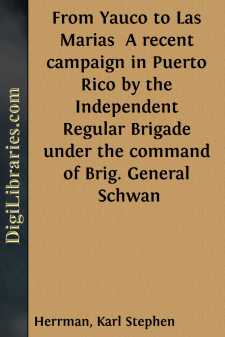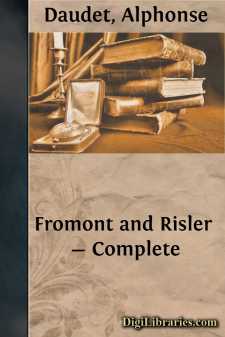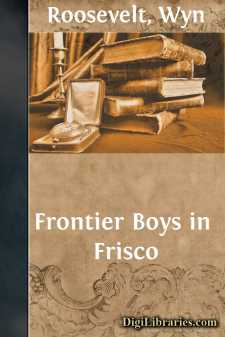Categories
- Antiques & Collectibles 13
- Architecture 36
- Art 48
- Bibles 22
- Biography & Autobiography 813
- Body, Mind & Spirit 142
- Business & Economics 28
- Children's Books 14
- Children's Fiction 11
- Computers 4
- Cooking 94
- Crafts & Hobbies 4
- Drama 346
- Education 46
- Family & Relationships 57
- Fiction 11829
- Games 19
- Gardening 17
- Health & Fitness 34
- History 1377
- House & Home 1
- Humor 147
- Juvenile Fiction 1873
- Juvenile Nonfiction 202
- Language Arts & Disciplines 88
- Law 16
- Literary Collections 686
- Literary Criticism 179
- Mathematics 13
- Medical 41
- Music 40
- Nature 179
- Non-Classifiable 1768
- Performing Arts 7
- Periodicals 1453
- Philosophy 64
- Photography 2
- Poetry 896
- Political Science 203
- Psychology 42
- Reference 154
- Religion 513
- Science 126
- Self-Help 84
- Social Science 81
- Sports & Recreation 34
- Study Aids 3
- Technology & Engineering 59
- Transportation 23
- Travel 463
- True Crime 29
Sort by:
THE CLOCKMAKER OF POISSY. Foreseeing that some who do not love me will be swift to allege that in the preparation of these memoirs I have set down only such things as redound to my credit, and have suppressed the many experiences not so propitious which fall to the lot of the most sagacious while in power, I take this opportunity of refuting that calumny. For the truth stands so far the other way that...
more...
“The land where I was born” was, in my childhood, a great battleground. War—as we then thought the vastest of all wars, not only that had been, but that could ever be—swept over it. I never knew in those days a man who had not been in the war. So, “The War” was the main subject in every discussion and it was discussed with wonderful acumen. Later it took on a different relation to the new...
more...
ANTE-BELLUM Before the war the Canadian Militia consisted of about 75,000 of all ranks and all grades of efficiency. To a neutral eye it must have appeared to be in a highly disorganised condition, for battalions and corps had sprung up here and there throughout the country with no proportion existing between them and the other arms of the service. And yet within a short two months after the outbreak...
more...
CHAPTER ONE One afternoon in late October four lean mules, with stringy muscles dragging over their bones, stretched long legs at the whirring of their master's whip. The canalman was a short, ill-favored brute, with coarse red hair and freckled skin. His nose, thickened by drink, threatened the short upper lip with obliteration. Straight from ear to ear, deep under his chin, was a zigzag scar...
more...
by:
Austin Potter
CHAPTER I. A DEPARTURE. "Richard, you will keep from drink, will you not, dear?" and the speaker, in order to make her pleading irresistible, kissed the one to whom these words were addressed again and again; and, as with a hand upon each shoulder, she looked lovingly into his eyes, there was an added pathos which, to a man of Richard Ashton's sympathetic and sensitive nature, was all...
more...
by:
Robert Barr
CHAPTER I. "My dear," said William Brenton to his wife, "do you think I shall be missed if I go upstairs for a while? I am not feeling at all well." [Illustration: "Do you think I shall be missed?"] "Oh, I'm so sorry, Will," replied Alice, looking concerned; "I will tell them you are indisposed." "No, don't do that," was the answer; "they...
more...
CHAPTER I The Independent Regular Brigade Place of meetingвÐâForces comprised by the commandвÐâWhy we were not like the VolunteersвÐâCharacteristics of the professional soldierвÐâSketches of the more important officersвÐâWhat we were ordered to do. Yauco, the place selected by General Miles as a rendezvous for the troops of the Independent Regular...
more...
by:
Alphonse Daudet
ALPHONSE DAUDET Nominally Daudet, with the Goncourts and Zola, formed a trio representing Naturalism in fiction. He adopted the watchwords of that school, and by private friendship, no less than by a common profession of faith, was one of them. But the students of the future, while recognizing an obvious affinity between the other two, may be puzzled to find Daudet's name conjoined with theirs....
more...
by:
John Ruskin
SECTION I. PRINCIPLES OF ART. 1. Perfect taste is the faculty of receiving the greatest possible pleasure from those material sources which are attractive to our moral nature in its purity and perfection; but why we receive pleasure from some forms and colours, and not from others, is no more to be asked or answered than why we like sugar and dislike wormwood. 2. The temper by which right taste is...
more...
by:
Wyn Roosevelt
CHAPTER I ON THE ENGINE "Would you like to ride on the engine, Jim?" asked the engineer of the south bound train. "Nothing would suit me better, Bob," replied Jim Darlington. "I guess you can drive this black horse," nodding towards the locomotive, "as well as you did the 'four' that you drove back in Kansas across the plains, when we were boys," and Jim...
more...











